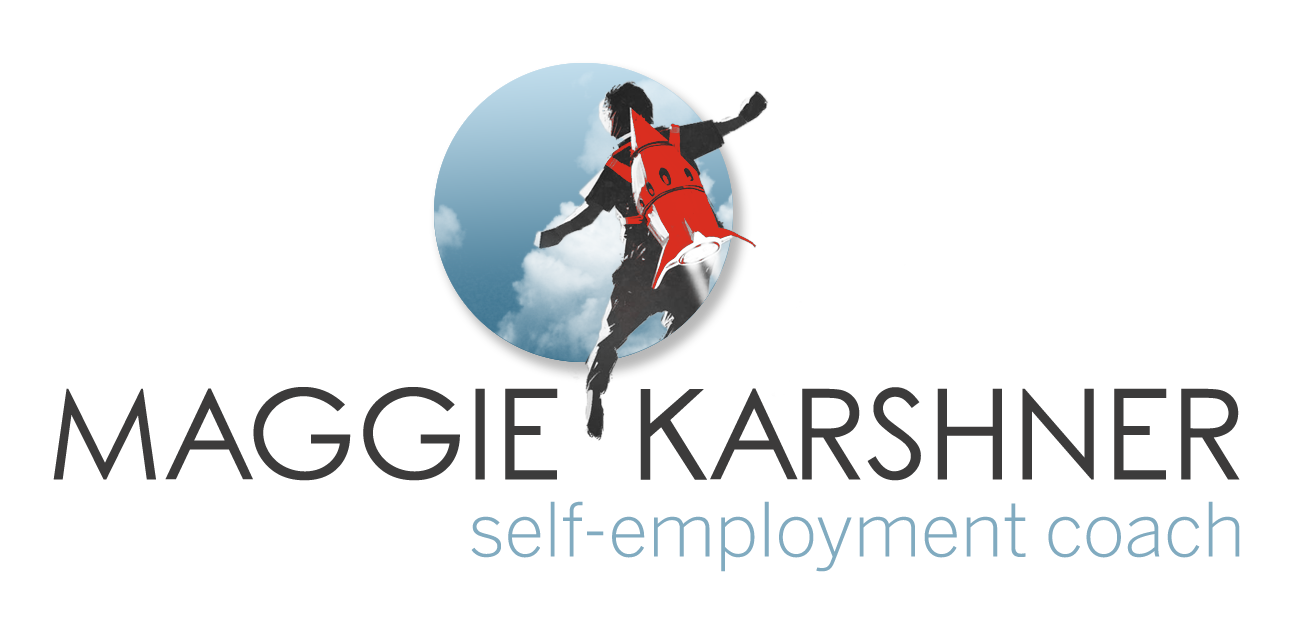Dealing with Difficult Things
/For those of you who have already started a business you've probably discovered how your business is like a fun house mirror reflecting yourself back at you in weird proportions. It gives you a whole different perspective on your strengths and weaknesses, and access to growth in whole new ways.
Difficult things are not unique to entrepreneurs; all humans have to deal with difficulty. As an entrepreneur it just becomes even more important to deal with the difficult things your business throws at you. The following are some thoughts about difficulty which, hopefully, will motivate you to find a path through the tough stuff.
My "difficult thing" lately has been difficult conversations. Or, from the perspective of my inner monologue: "oh dear lord, really?!?! Does everything have to be hard?!" Every time I'm faced with one of these situations I have a choice: I can avoid it, put it off, procrastinate it into oblivion, deem it not actually that important OR I can face it, engage with it, and grow from it.
The first option is the definitely the easier path. Often times it's the path of inaction; if I literally do nothing, that will be the result. It's also the path of rationalization where our brains tell us "you know, I don't really need to have that difficult conversation, this is probably an issue that's all in my own head" or "really this is their problem and they need to come to me about this" or "there are all these more important tasks I need to be working on, I just don't have the time."
Sometimes there are legitimate reasons why we don't engage with difficult things. Difficult things are (hopefully) a "sometimes food" to quote Cookie Monster's modern catch phrase. We can't take on everything, so we do need to pick our battles wisely. Regardless of if we choose to engage or not, the result should nurture ourselves. It should feel more like the enriching sensation of eating yummy vegetables, and not the lethargic, sick feeling of eating too many cookies.
The other option is proactive. It takes effort, and requires us to move through discomfort. It also feels riskier. If we do nothing we can't be "blamed" if things go wrong, but if we do something then maybe that's what "caused" a resulting mishap. The proactive path typically operates at the leading edge of our skills, so we're not usually very confident and "failure" is a real possibility.
The benefit of being proactive is that this is a path of growth. This is the path where we become better than we've been. Where we have the opportunity to conquer new challenges and gain confidence in things we didn't have confidence in before. This is progress. This is the reason why (to the best of my understanding) we are alive. And it doesn't mean that it isn't scary. At some point in our learning process we have to put things into action. That is scary, and that is ok.
Now that I've written this lovely pep-talk, let's get this straight: I am not perfect at this in any way, shape, or form.
Knowing which path to take is tricky. The "right" path often feels like the wrong path. Often the only thing I've got going for my decision is that it's the path forward and for that reason it is the right path. It feels like a flimsy reason, and there's always a voice in my head that is not convinced.
Once I've made the choice, the difficult situation comes with much effort and many unexpected ramifications. Sometimes difficult things resolve into a positive outcome, and sometimes it doesn't. For every difficult conversation I've had that resolved well, there are 5 that resolved very "meh" or didn't really resolve at all. And sometimes the conversations blow up in my face. For every wrong turn that took a lot of effort, there's a right turn that also takes a lot of effort. Sometimes the result is that I have to get back on the horse and have more difficult conversations to try and correct the first one.
And through all this challenge, you don't always know that there will be a reward on the other side. For me, what keeps me going is knowing that regardless of the "success" of my efforts, I learned something. I have more data to help make the decision next time. I've increased my skill at having difficult conversations. I've increase my capacity to deal with someone when they blow up at me. I'm more vexed as to why things turned out they way they did and inspired to learn more. There is much to learn from "failure."
I encourage everyone to engage with difficulty. Notice how you choose or don't choose to deal with difficult situations. What fears come up? What motivates you to take the leap and face difficulty? How do you reward yourself when you know you've done something difficult? Facing difficulty is a very worthwhile practice and by engaging with it consciously, we can turn it into a slingshot for growth.



